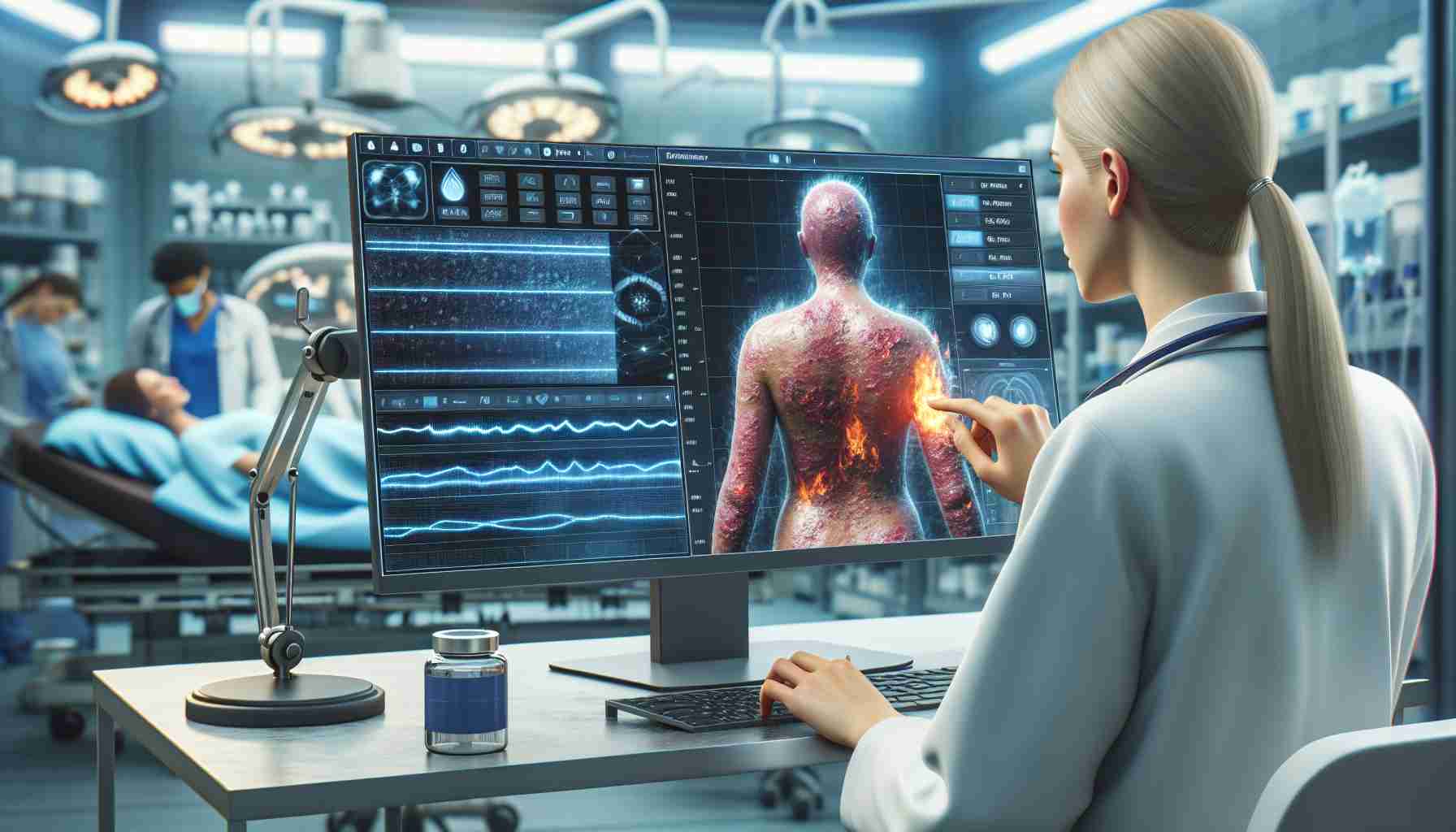New research highlights a transformative approach in determining the necessity of surgery for burn patients through artificial intelligence (AI). In current medical practice, doctors take up to two days to decide if a burn is serious enough to require a skin graft. Thanks to innovative technology, this decision-making process could soon be reduced to less than 30 seconds.
The system involves a specially designed camera connected to a computer equipped with AI software. This robust technology has proven capable of identifying damaged skin with an impressive accuracy rate of 90%. The use of this cutting-edge diagnostic tool, known as “DeepView,” could significantly reduce the waiting period for patients needing surgical intervention.
Medical professionals often rely on scanning machines which demand lengthy wait times. However, the DeepView device shows promise in revolutionizing the assessment of burns. Researchers have trained the device by analyzing various burn degrees, enhancing its ability to provide accurate damage evaluations. Evidence indicates that, in comparison, doctors currently make correct assessments in only about half of the cases they encounter.
The utilization of AI in this context not only streamlines the evaluation process but also promises a higher accuracy in identifying burns that require surgery. This development is poised to save valuable time and resources, potentially improving outcomes for burn victims worldwide.
Here are additional facts and insights related to the topic of AI revolutionizing burn assessment, pertinent questions and answers, key challenges or controversies, as well as the advantages and disadvantages.
Additional Facts:
– Traditional burn assessment methods rely heavily on the experience and expertise of the clinician, which can lead to variation in patient outcomes.
– Skin grafts are one of the most common treatments for serious burns; timely decision-making can prevent complications and speed up recovery.
– AI algorithms like DeepView can analyze burn injuries in ways that might be beyond the capabilities of the naked eye, identifying subtle patterns or characteristics indicative of more serious damage.
– Incorporating such technology into the healthcare system often requires regulatory approval, which can vary significantly by country and can involve extensive clinical trials to establish safety and efficacy.
Important Questions and Answers:
– Q: How does the AI system improve upon current methods of burn assessment?
– A: The AI system can analyze burns quickly and with high accuracy, reducing subjectivity in evaluation and potentially allowing patients to receive necessary treatments faster.
– Q: What are the implications of AI for medical staff and the healthcare system?
– A: AI can be an aid to medical staff, reducing workload and providing support in making critical decisions. For the healthcare system, it can mean cost savings and better patient outcomes.
Key Challenges and Controversies:
– There may be ethical concerns regarding the replacement of specialist judgment with machine analysis; ensuring a collaborative approach is crucial.
– Data privacy and security are critical, considering these systems would handle sensitive patient information.
– Some practitioners may be resistant to adopting AI, preferring traditional methods; hence, integrating it requires proper training and change management.
Advantages:
– Reduced time to treatment decision.
– Potential for higher accuracy in assessment.
– May lead to more consistent outcomes by minimizing human error.
– Could enable healthcare providers to treat more patients efficiently.
Disadvantages:
– Initial costs for implementing such technology in hospitals.
– Need for ongoing training and recalibration of AI algorithms as they encounter new data.
– Requires integration into existing hospital information systems, which can be complex and time-consuming.
– Reliance on technology raises the question of what happens if the system fails or makes an error.
For more information about the broader field, you can visit reputable sources on artificial intelligence and its applications in medicine, such as IBM Watson Health or Google AI Health. Please ensure that links to specific domains are valid and remain aware that URLs to subpages are not requested for inclusion.

